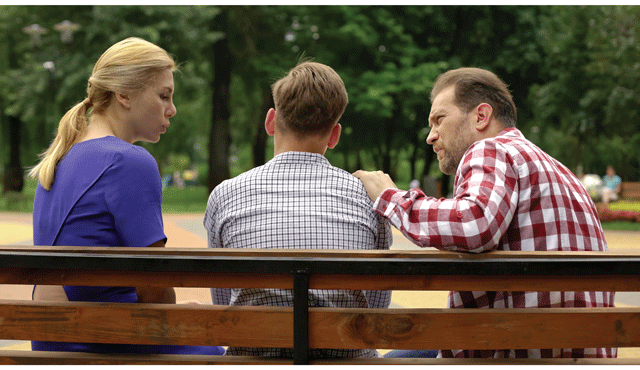Facing an autumn of uncertainty, adult Catholics may experience feelings of anxiety, foreboding, boredom, and anger. For children, the unknown can be frightening – and downright threatening.
In light of Gov. Gavin Newsom’s latest edict that closes public school classrooms, there’s less uncertainty about attending school in the midst of a global pandemic. Still, the fears and questions that remain in our kids’ minds – about their routines, classes, and playdates with friends – demand their parents’ communication, reassurance, and support.
“Arguably, many families are being asked to do the impossible during these times,” acknowledges Linda Ji, the Diocese of Orange’s director of pastoral care for families in all stages. “We are forced to make choices among only undesirable options.” Among those choices is the responsibility to home-school children whose classrooms are closed, to keep them healthy, and to provide extracurricular enrichment activities as well.
Communication is paramount to calming children’s anxieties, even when it’s not clear what the future will bring, says Margery Arnold, an Irvine-based child psychologist.
“Speak to your children when you are calm yourself,” Arnold advises. “You can tell them the facts, what is known and unknown, and ask them about their thoughts and feelings.
“Every time the family goes through something difficult, if children are part of the solution it helps them develop resilience and have hope.”
Asking children what they know, what they have heard, and what they fear will happen is the best place to start, she says. “Communication is how we keep each other safe in this culture, where we have so many freedoms. It’s critical to keeping our kids safe.
“If parents don’t know what their kids are experiencing, they can’t guide or protect them. We must keep the doors of communication open.”
While uncertainty can be intimidating to even the most well-adjusted of us, Arnold says, it’s important for family members to remember the lessons we’ve already learned and recognize the hardships we’ve successfully overcome.
“Kids are remarkably good at handling uncertainty,” she observes. “We’ve been surprised and challenged by things in particular during the COVID-19 crisis. But challenges make us stronger.”
Loving relationships and intentional family rituals are important in times of crisis, Ji notes. “It is in the little ways we love each other that our homes and families are transformed and consecrated to Christ.
“This does not mean just teaching our children how to pray or creating family prayer rituals, although of course it is good for families to pray together,” she explains. “All of the ‘mundane’ things we do – chores, work, play, school at home during a pandemic – can be sacred when done together with intentionality and love.
“This is a kind of domestic spirituality that will help us through and nourish our faith as well as the faith of our children.”
She concurs that consistent communication is crucial to a functional family. “Communication is essential for fostering intimacy and loving relationships in the home that is the basis of faithful Christian family living.”
Ji emphasizes that parents must take care of themselves first so they can model well and care for their children. “We start with our strengths, and work on what we value most. Celebrate successes no matter how small and know we can’t do it all.”

